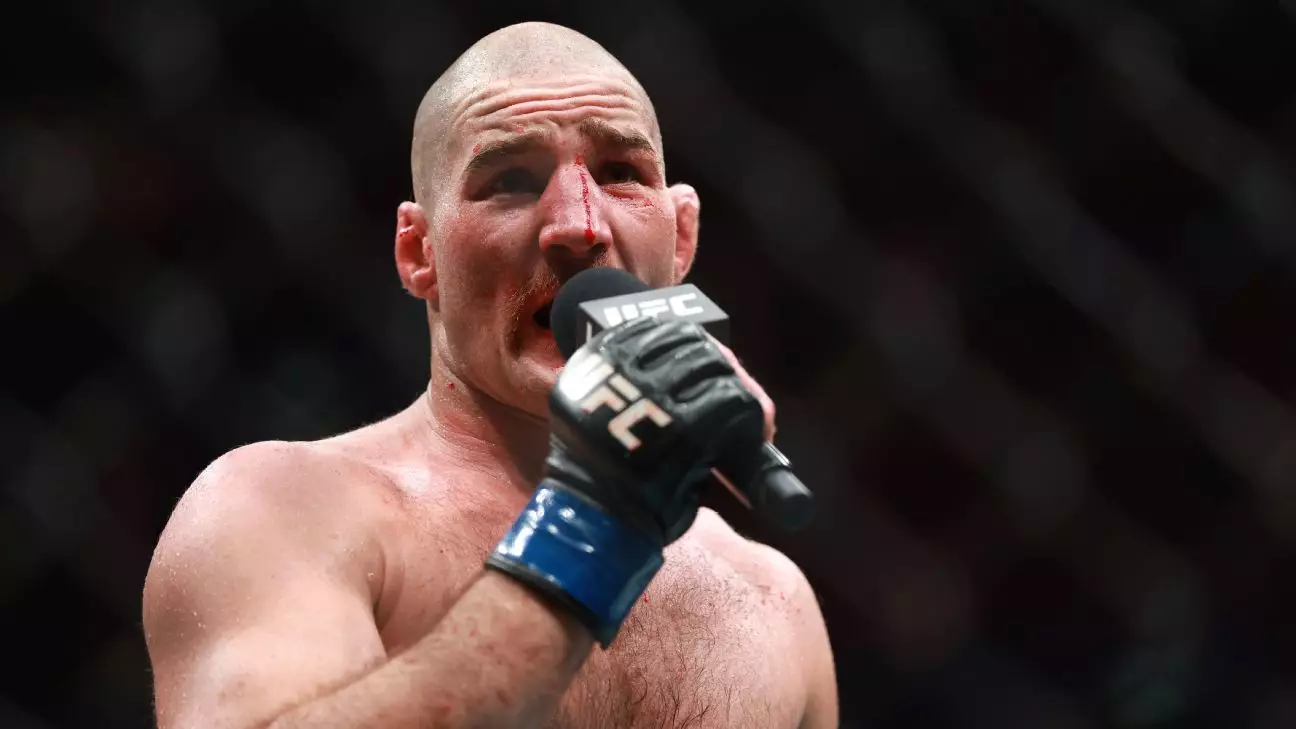In the world of mixed martial arts (MMA), the relationship between fighters and their coaches can be as complex as the sport itself. Recent events surrounding former UFC middleweight champion Sean Strickland exemplify this dynamic, illustrating the emotional and psychological battles that extend beyond the Octagon. Following a disappointing performance at UFC 312, Strickland has found himself at odds with his longtime coach, Eric Nicksick, prompting a public showdown that is as revealing as it is unsettling.
Strickland entered UFC 312 with high hopes, but was met with a harsh reality as he faced Dricus Du Plessis in a title rematch. The unanimous decision loss—marked by scorecards reading 50-45, 50-45, and 49-46—was not just a defeat; it was a wake-up call. In the aftermath, Nicksick publicly criticized Strickland’s performance, labeling it “underwhelming” and suggesting that Strickland appeared to be “sleepwalking” in the Octagon. Such public scrutiny can be devastating for a fighter, who often relies on the confidence and support of their coach.
Strickland’s response to Nicksick’s remarks was laden with emotion. In a candid social media video, he expressed his disappointment at having to defend himself publicly after Nicksick questioned his dedication to the sport. The fallout led Strickland to declare that he probably wouldn’t have Nicksick in his corner for future fights, indicating a significant rupture in their professional relationship.
In his response, Strickland revealed critical context behind his performance, sharing insights that often remain hidden from the public eye. He disclosed suffering from a broken arm during training and battling a staph infection leading up to the fight. This candid admission sheds light on the oft-ignored physical toll that fighters endure, complicating the narrative of a straightforward loss. Strickland characterized the fight camp as a “struggle,” stating that he fought through numerous obstacles that would have sidelined many athletes.
Moreover, Strickland’s mental resilience shone through when he recounted sustaining a broken nose during the fight but continuing to push through. This reflects not only his tenacity but also the intense pressure under which fighters operate—where the stakes are high, and quitting is not an option. Strickland emphasized this code of honor among fighters, focusing on his refusal to bow out despite the pain.
One of the most striking elements of this feud lies in the contrasting motivations between Strickland and Nicksick. While Nicksick expressed a desire to coach champions and demanded a certain level of commitment, Strickland appeared to perceive this relationship differently. A rift often forms when there is misalignment in goals—the coach aiming for success while the fighter grapples with personal and circumstantial challenges that may hinder performance.
Strickland’s assertion that he “didn’t quit” during critical moments of the fight speaks volumes about his commitment to the sport; however, it also highlights a deeper philosophical difference between him and Nicksick regarding what core values define a successful fighter. As this relationship evolves, both will need to evaluate how they navigate these conflicting motivations.
For Sean Strickland, the journey forward must be one of reflection, healing, and recalibration. With a professional record of 29-7, he has demonstrated resilience in the face of adversity before, but the pressure is mounting. The fight lost to Du Plessis could mark a pivotal turning point in his career—one that may guide his choices regarding future coaching and training dynamics.
Strickland’s statement concerning the desire for a supportive team resonates deeply within the competitive landscape of MMA. Ultimately, the interplay of personal motivation, physical condition, and supportive coaching creates a nuanced backdrop against which fighters must navigate. As Strickland embraces this chapter, he must seek allies who understand and align with his vision, ensuring that he is not just battling his opponents within the Octagon but also forging a harmonious alliance outside of it.


Leave a Reply